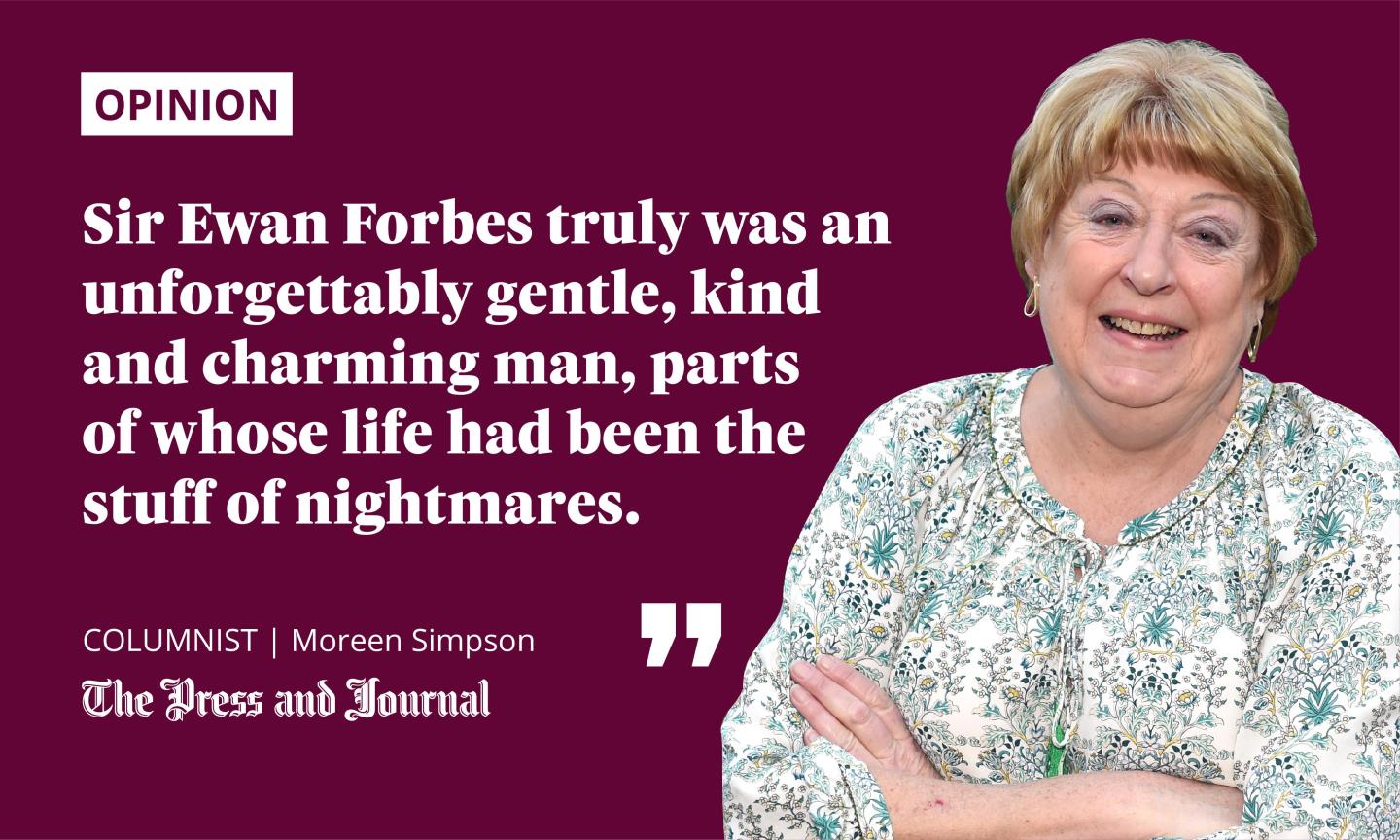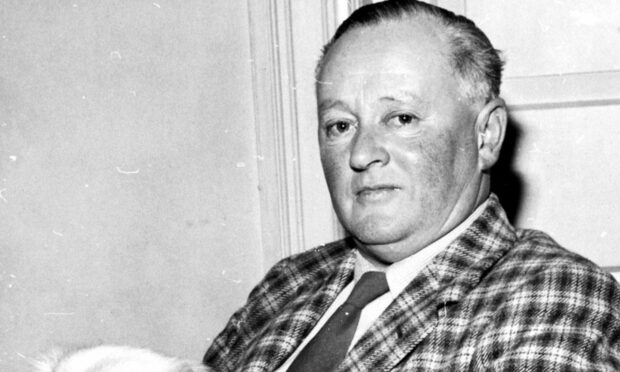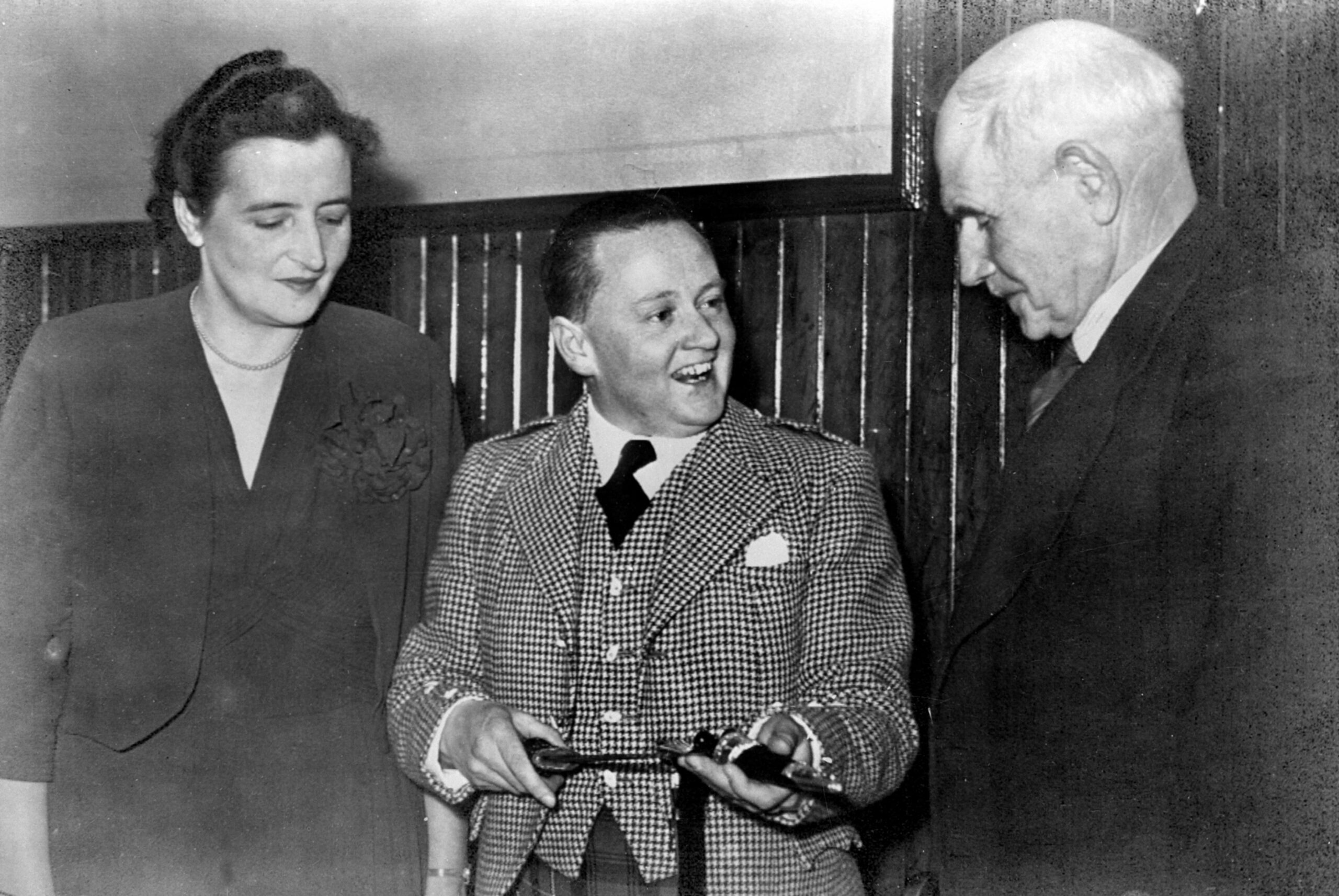After 50 years in journalism, it’s one of the stories which fascinated and moved me most.
Now it could be made into a TV drama. In hindsight, I wonder why on earth didn’t it happen before. After all, the life of Sir Ewan Forbes, 11th Baronet of Craigievar, has everything to make it compulsive viewing – secret love, scandal, court battles, a transgender controversy.
I also know that, had he been alive, the man at the centre of it, would have been appalled. So loathe to talk about those turbulent years that when he wrote his autobiography, Ewan made not a mention of the fact that for more than half his life he had been known as Elizabeth.

When that book, The Aul’ Days, arrived on his desk in autumn 1984, my boss immediately realised its significance, remembering the sensational headlines in the 1950s about the Aberdeenshire GP and landowner apparently changing sex, then the 1960s court case.
The details were still shrouded in mystery because no one had ever spoken, and legal proceedings were in private. I had to read the book and set up an interview. However, when I later told my boss there was no mention of the transition, he commanded: “Now get the full story.”
Protected by the local community
In Forbes tartan kilt and tweed jacket, 72-year-old Ewan opened the door of his chalet-style house in Strathdon; a small man, thin and frail-looking from recent illnesses. His wife and former housekeeper, Isabella, taller, stronger, cautious and protective.
Charismatically, he described his life-long love of country dancing, Scottish poetry, work as a GP covering more than 200 miles of the most remote Aberdeenshire. Then I dropped my bombshell. I would have to write about his change of sex.
They exchanged looks of disappointment and despair. He’d never spoken publicly about the agony of being hounded by a huge London press pack when he put a small ad in The Press & Journal in 1952 that Dr Elizabeth Forbes-Sempill now wanted to be known as Ewan. Incredibly, for the time and place, his patients and the community at large formed a protective shield, keeping the hacks at bay.
Later, after he inherited the Baronetcy, the new laird hit the headlines again when his cousin contested it. After a series of hearings and appeals, including evidence from a dozen specialist doctors, his status as a man was legally confirmed in 1969, the medical decision being that he was born “a hermaphrodite”.
Unforgettably kind and gentle
They didn’t heave me out. Slowly, guardedly, reluctantly, Sir Ewan spoke – not about his transition – but about the anguish he suffered and his desperation to live the life he wanted with the woman he loved.
What he didn’t specifically explain, but I gathered, was that at birth a decision had been taken about his sex. The older he got, the more he knew it was the wrong option.
I hope any TV drama portrays Ewan and his beloved and adoring Isabella as the quiet but determined hero and heroine they were
Later, the couple started asking about me, delighted I also had a wee loon called Ewan, with “the good clan name” Cameron. About a week later, a bulky parcel arrived at the office for me. From Sir Ewan, it was a bolt of Cameron tartan with a note to make into kilts for my twins.
He truly was an unforgettably gentle, kind and charming man, parts of whose life had been the stuff of nightmares. I hope any TV drama portrays Ewan and his beloved and adoring Isabella as the quiet but determined hero and heroine they were.

